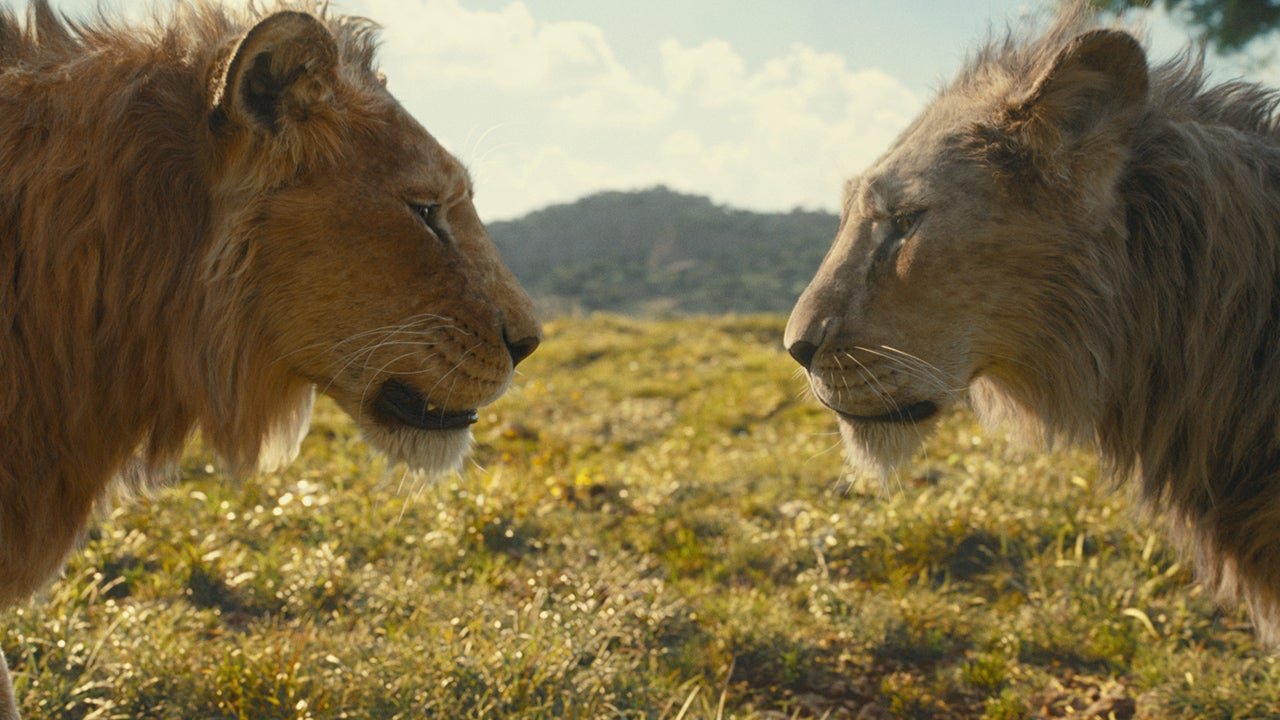Mufasa: The Lion King is the most effective model of a Barry Jenkins-directed youngsters’s movie possible. That praise would possibly learn as backhanded, however contemplating many had been afraid the Disney machine would chop and screw the visible and storytelling splendor of the director behind Moonlight, such an astonishing result’s a mighty win. This photorealistic prequel to Jon Favreau’s 2019 remake of The Lion King is a serious technical achievement and an emotional leap ahead from its predecessor. And whereas the story of Mufasa and Taka, two brothers turned enemies, isn’t altogether new, Jenkins provides sufficient twists and turns throughout assorted terrains for his or her predictable sibling rivalry to have some chew.
Seeing Jenkins guiding this materials, irrespective of how assured, will certainly rattle many who’d relatively he make an unique movie. But there isn’t the sense Jenkins made Mufasa to fulfill solely grownup filmgoers (although there may be an aching tribute to James Earl Jones that’ll contact many older viewers). This film is aimed toward a youthful viewers. There’s mischievous humour and jaunty present tunes to accompany the campfire-story temper. Sometimes the will to maintain the viewers engaged – achieved via a framing system that sees Mufasa’s story informed to his granddaughter, Kiara (Blue Ivy Carter), by the sage mandril Rafiki (John Kani) – restricts us from absolutely immersing ourselves on this digital world. By the top, nonetheless, Jenkins works sufficient enchantment for Mufasa to conjure actual pleasure and pressing poignancy.
Rank Disney’s Live-Action/CGI Remakes
Rank Disney’s Live-Action/CGI Remakes
It helps that not like Favreau, Jenkins isn’t restricted to creating a shot-for-shot remake. As associated by Rafiki – and ceaselessly, annoyingly interrupted by asides from sidekicks Pumbaa (Seth Rogen) and Timon (Billy Eichner) – Jeff Nathanson’s script finds younger Mufasa (Braelyn Rankins) residing in a cracked, drought-stricken land and dreaming of a far-off verdant paradise referred to as Milele (a swahili phrase that means “without end”). After a sudden violent flood (which mirrors each the motion and emotional influence of the animated unique’s wildebeest stampede) rips the cub away from his mom and father, he drifts miles down river, the place he’s saved by the prince of one other satisfaction, Taka (Theo Somolu). Thematically, you may already see why Jenkins could be interested in this materials. His miniseries adaptation of Colson Whitehead’s The Underground Railroad beforehand demonstrated his eager curiosity in kinship, ancestry, oral storytelling, and maternal love. The final of these themes takes form via Taka’s mom, Eshe (Thandiwe Newton), who raises Mufasa regardless of the grumblings of her husband Obasi (Lennie Jones), who sees outsiders as a plague to be purged. As portrayed by a commanding Aaron Pierre, the orphan grows to turn into extra like Eshe, studying empathy, creativeness, and sensitivity; Taka (a cagey Kelvin Harrison Jr.), then again, learns deceit and laziness from his father.
The juxtaposition of the 2 lions hits on one other of Jenkins’ pursuits: the repeating of violent cycles which are typically handed from father to son. Mufasa overtly cranks up this theme, nearly to its detriment, with the emergence of the totalitarian white lion Kiros (Mads Mikkelsen). Fleeing from Kiros and his murderous followers throughout wealthy renderings of tangled jungles and crocodile-infested waters, Mufasa and Taka meet the lioness Sarabi (Tiffany Boone), her hornbill scout Zazu (Preston Nyman), and Rafiki (Kagiso Lediga), who’s been exiled from his group due to his promonitions. The movie is strongest when Jenkins follows this quintet of castaways: Coming-of-age angst like Taka falling for Sarabi initially provides some lighthearted stress to the combination.
But Mufasa stumbles every time it cuts again to Kiara. These interludes are a logical inclusion, particularly as a result of her questions on betrayal and hate will most likely be echoed by the youngsters within the viewers. But no matter comedian reduction Timon and Pumbaa are supposed to supply merely doesn’t land. They’re usually unfunny, counting on the worn-out schtick of poking enjoyable at Disney and its legacy of tie-in merchandise and best-selling soundtracks, as if they’re edgier than the no-brainer economics that generated a prequel to Favreau’s billion-dollar (and much inferior) Lion King. They’re additionally tasked with reminding us of the place we’re at within the story, a duty that always feels tonally misplaced.
Fortunately, there’s lots of visible majesty to distract from Mufasa’s comedic shortcomings. Jenkins and his very long time cinematographer James Laxton love sweeping digital camera motion, counting on tracks, whip pans, and cranes to seize vast vistas of lush grasslands and snow capped mountains – and in contrast to lots of modern Disney productions, you’d by no means know they pulled all of it off on a soundstage. The pair clearly get pleasure from the beautiful world they’ve created, and it’s refreshing to see lengthy, unhurried takes that belief the viewers to take a look at a picture for longer than 5 seconds. Similarly, editor Joi McMillon’s dissolves effectively roll us from scene to scene relatively than bludgeoning viewers with hyperactive cuts.
Jenkins’ agency belief within the expertise can be rewarded. As against Favreau’s forged in The Lion King, the elephants, giraffes and birds right here don’t appear to be items of melted plastic. They’re impressively elastic. Likewise, the lions even have facial expressions, emoting with a naturalness that doesn’t play like one thing out of the uncanny valley. That motion actually helps with the movie’s unique songs, written by Lin-Manuel Miranda. Most of Miranda’s tracks are memorable sufficient tunes that get us to bob together with the story. The main spotlight, nonetheless, is the R&B duet “Tell Me It’s You,” which pushes Mufasa and Sarabi’s burgeoning love within the face of a jealous Taka. That rhythmically kinetic track is a welcome throwback to the times of the Disney Renaissance, when singers like Peabo Bryson lent their vocals to smashes from musical-theater giants like Howard Ashman and Alan Menken. (Before the pop stars had been writing and singing the songs, as Elton John did for the unique Lion King.)
By the ultimate 10 minutes, nonetheless, Jenkins must tie a number of bows: the ultimate confrontation between Mufasa and Kiros, the origin of Taka’s scar, and the creation of Pride Rock. He does so with aplomb, crafting an exhilarating last sequence that, when cross minimize between Mufasa and Kiara, brings every part full circle.




